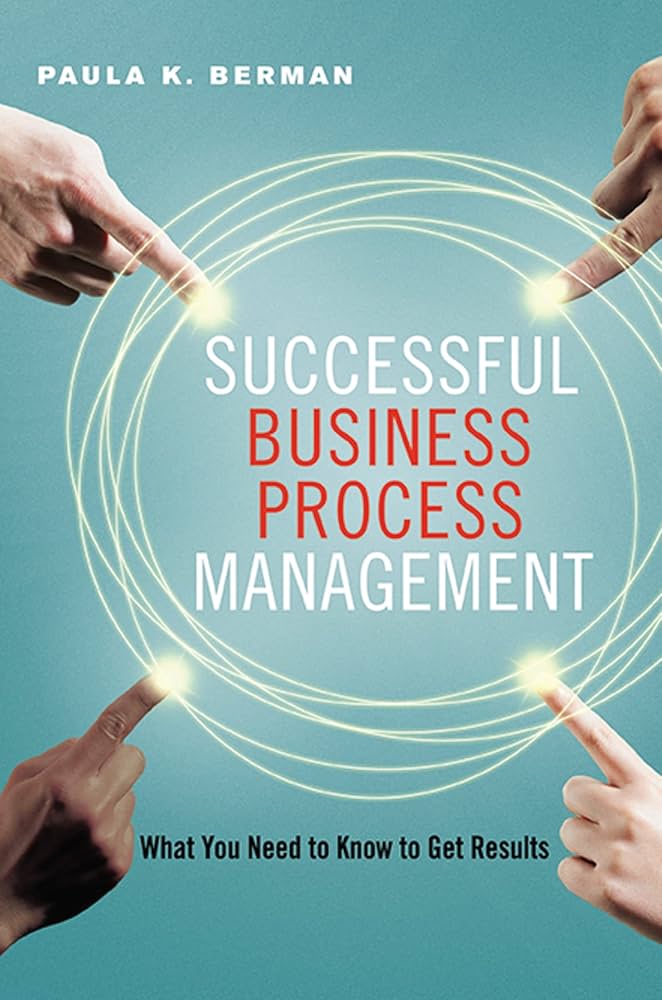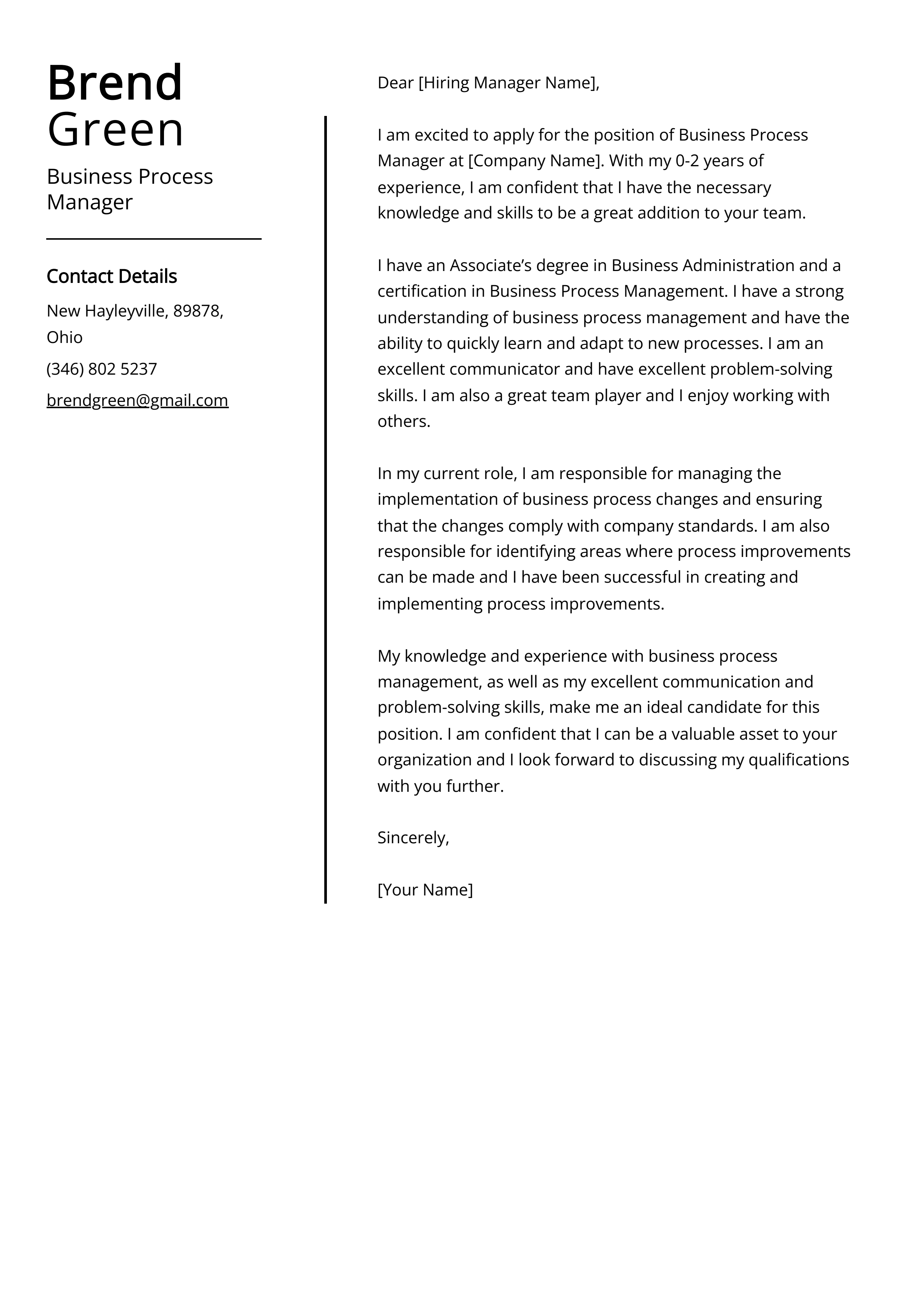
How to Become a Business Process Management Expert Today
Are you looking to streamline operations, enhance efficiency, and drive growth in your business? If so, mastering the art of Business Process Management (BPM) could be your key to unlocking these benefits.
BPM is not just a buzzword; it’s a strategic approach that helps businesses optimize and automate their processes for better performance and outcomes. Imagine transforming chaos into order, reducing costs, and improving customer satisfaction—all by understanding and implementing BPM strategies.
In this guide, we’ll walk you through the steps to become proficient in Business Process Management. You’ll discover the skills you need, the tools that can propel you forward, and the insights that will make you an invaluable asset to any organization. Ready to revolutionize the way you work and make a tangible impact on your business? Let’s dive into the world of BPM and uncover the secrets to becoming a true process management expert.

Understanding Business Process Management
Understanding Business Process Management (BPM) is essential in today’s business world. It involves analyzing, designing, and improving processes. BPM helps organizations achieve better efficiency and productivity. This approach ensures that businesses operate smoothly and effectively. Let’s delve deeper into what BPM means and its significance.
Defining Business Process Management
Business Process Management (BPM) is a systematic approach. It involves managing and improving a company’s workflow. It focuses on optimizing and automating processes. BPM aims to enhance overall performance. It involves identifying the best methods to achieve goals. This can include reducing costs or improving customer satisfaction. BPM helps businesses adapt to changes quickly.
Importance In Modern Business
BPM is crucial for businesses in today’s competitive market. It provides a structured way to manage operations. Companies can streamline their processes and reduce inefficiencies. This leads to cost savings and better resource utilization. BPM also enhances agility, enabling quick responses to market shifts. It ensures compliance with regulations and standards. Effective BPM leads to improved customer experiences. Happy customers mean increased loyalty and revenue. By implementing BPM, businesses can stay ahead in the industry.
Essential Skills For Bpm Experts
To excel in Business Process Management (BPM), certain skills are crucial. These skills help professionals manage and improve business processes effectively. Below, we explore key skills every BPM expert should develop. Each skill plays a vital role in achieving success in this field.
Analytical Thinking
Analytical thinking is essential for BPM experts. It involves breaking down complex processes into simpler parts. This skill helps in understanding how each part functions. Professionals can identify inefficiencies and potential improvements. Analytical thinking aids in data interpretation, ensuring informed decision-making.
Problem-solving Abilities
Strong problem-solving abilities are crucial in BPM. Challenges arise in business processes that need quick solutions. Experts must identify root causes and develop effective strategies. This skill ensures smooth operations and enhances productivity. It encourages creative thinking, leading to innovative solutions.
Communication Skills
Effective communication is vital for BPM experts. They must convey ideas clearly to different teams. Good communication ensures everyone understands process changes. It fosters collaboration and teamwork. Listening skills are also important. They help in understanding feedback and making necessary adjustments.
Educational Pathways
Embarking on a journey to become a Business Process Management (BPM) professional involves discovering educational pathways that can lead you to success. Whether you’re a fresh graduate or someone looking to shift careers, understanding the educational landscape can help you make informed decisions. Let’s break down the various options available to you as you pursue a career in BPM.
Relevant Degrees And Certifications
A degree in business administration, management, or information technology can provide a solid foundation for BPM. These programs often cover key concepts like project management and organizational behavior. Pairing your degree with certifications such as Lean Six Sigma or Certified Business Process Professional (CBPP) can enhance your credibility.
Certifications are not just paper; they show your commitment to mastering the field. Consider how these credentials can open doors to more job opportunities. Are you ready to invest in your future?
Online Courses And Workshops
Online courses offer flexibility, allowing you to learn at your own pace. Websites like Coursera and Udemy provide courses specifically focused on BPM. These courses often include practical examples and case studies, making learning more relatable.
Workshops offer hands-on experience and networking opportunities. They can be the perfect setting to meet industry professionals and learn from their experiences. Have you considered how these connections could help you advance your career?
Educational pathways in BPM are varied and plentiful. Choosing the right one depends on your career goals and personal interests. What steps will you take today to get closer to your dream career in Business Process Management?

Gaining Practical Experience
Gaining practical experience is crucial in becoming a successful Business Process Management (BPM) professional. Understanding theories and concepts is important. But applying them in real-world scenarios makes the difference. Real experience builds confidence and hones skills. It bridges the gap between knowledge and application. Here, we explore two key methods to gain practical experience.
Internships And Entry-level Positions
Internships offer firsthand experience in BPM roles. They provide insights into daily operations. Working alongside experienced professionals enhances learning. Internships are a stepping stone for your BPM career. Entry-level positions introduce you to basic tasks. They pave the way for future growth. Engaging in real projects develops your problem-solving abilities. These roles build a strong foundation for BPM expertise.
Networking With Professionals
Networking connects you with industry experts. Attend conferences and workshops. Join BPM forums and online groups. Networking opens doors to mentorship opportunities. It helps you learn from seasoned professionals. Share experiences and insights with peers. Building relationships enhances your industry knowledge. It keeps you updated on the latest trends and practices. Networking is essential for career advancement in BPM.
Tools And Technologies
Explore essential tools and technologies for effective business process management. Software like BPM platforms help streamline workflows. Cloud-based solutions offer flexibility and scalability, ensuring efficient operations.
Effective Business Process Management (BPM) relies heavily on the right tools and technologies. As you embark on your BPM journey, understanding and selecting the appropriate resources can be a game-changer. The right technology not only streamlines processes but also enhances efficiency, saves time, and ultimately contributes to the bottom line.
Software Platforms
BPM software platforms are the backbone of process management. They help you design, implement, monitor, and optimize business processes. Popular platforms include IBM Business Automation Workflow, Appian, and Pega. These tools offer features like process modeling, real-time analytics, and automation capabilities. They enable you to visualize processes and identify bottlenecks quickly. Imagine having a tool that alerts you when a task is overdue or when a process needs optimization. Choosing the right software depends on your business needs and budget. Some platforms offer robust solutions ideal for large enterprises, while others are perfect for small to medium businesses. Have you evaluated which platform aligns with your business goals?
Emerging Technologies In Bpm
Emerging technologies are reshaping BPM in fascinating ways. Technologies like Artificial Intelligence (AI) and Machine Learning (ML) are enhancing decision-making and predictive analytics in BPM. AI can analyze vast amounts of data to predict process outcomes and suggest improvements. Robotic Process Automation (RPA) is another game-changer, automating repetitive tasks that previously required human intervention. Imagine the efficiency gained by automating data entry or generating reports without human error. Blockchain technology is also making its mark by ensuring transparency and traceability in processes. This is particularly beneficial for industries where data integrity is crucial, like finance and healthcare. Keeping up with these technologies can seem daunting. However, embracing them can provide a competitive edge. Have you considered how integrating these emerging technologies could transform your business processes? By leveraging the right tools and keeping an eye on emerging trends, you can significantly enhance your BPM efforts. Remember, the goal is to make your processes as efficient and effective as possible. Are you ready to harness these technologies to propel your business forward?

Staying Updated In The Field
Staying updated in the field of Business Process Management (BPM) is crucial for success. The world of BPM is dynamic, with new strategies and technologies emerging regularly. To keep your skills sharp and relevant, you need to actively seek out learning opportunities. Whether you’re attending industry conferences or joining professional associations, staying informed helps you adapt and grow.
Industry Conferences And Events
Attending industry conferences and events is a great way to stay updated. These gatherings are brimming with experts sharing their latest insights and innovations. You get to network with peers, learn from seasoned professionals, and discover new tools that can enhance your BPM skills.
Consider events like the Business Process Management Summit or the annual BPM Conference. These offer workshops, panel discussions, and keynotes from industry leaders. Listening to these experts can give you fresh perspectives and practical advice. Plus, the connections you make can lead to future collaborations or mentorships.
Professional Associations
Joining a professional association is another effective way to stay current. These organizations often provide exclusive resources, webinars, and training sessions. Membership can give you access to a wealth of information tailored specifically for BPM professionals.
Look into associations like the Association of Business Process Management Professionals (ABPMP) or the International Society of BPM Professionals (ISBPM). They offer certification programs, which can boost your credibility. Plus, being part of a community means you can share experiences and learn from others facing similar challenges.
Reflect on your current practices. Are you actively seeking out these resources? Could attending a conference or joining an association be your next step? Staying updated isn’t just about learning—it’s about preparing for the future of BPM. Your proactive approach can set you apart in this ever-evolving field.
Career Opportunities And Growth
In the dynamic world of Business Process Management (BPM), the potential for career opportunities and growth is immense. As companies seek to optimize their operations, professionals in BPM are crucial in streamlining processes and enhancing efficiency. Whether you’re just starting or looking to advance, understanding the landscape of BPM can set you on a path to success.
Job Roles In Bpm
Business Process Management offers a variety of job roles tailored to different skills and interests. You might start as a BPM analyst, focusing on identifying inefficiencies in workflows. As you gain experience, you could transition into a BPM manager, overseeing larger projects and guiding teams to implement strategic changes.
Other roles include process architects, who design and maintain process models, or BPM consultants, who offer expert advice to multiple organizations. Each role requires a unique set of skills but shares a common goal: making businesses run smoother and more efficiently.
Think about which role aligns with your strengths. Are you detail-oriented? Analytical? Creative in problem-solving? Each of these traits can guide you towards the right BPM position.
Advancement Strategies
Growth in BPM is not just about climbing the corporate ladder—it’s about expanding your skill set. Consider pursuing certifications in BPM methodologies like Six Sigma or Lean. These can boost your credentials and enhance your understanding of process improvement.
Networking is another powerful tool. Connect with others in the BPM field through industry events or online forums. Sharing experiences and learning from peers can open doors to new opportunities and insights.
Always be curious. Ask questions and seek feedback. What processes could be improved in your current role? How can you contribute more effectively to your team? These inquiries not only enhance your performance but can also highlight you as a proactive and valuable asset.
Continuous learning is key. Stay updated with the latest BPM trends and technologies. This not only prepares you for advancement but also keeps your approach fresh and innovative.
Frequently Asked Questions
What Is Business Process Management?
Business Process Management (BPM) is a systematic approach to improving an organization’s processes. It involves analyzing, designing, implementing, and monitoring business processes to enhance efficiency and effectiveness. BPM helps organizations adapt to changes, improve customer satisfaction, and drive innovation by optimizing workflow and reducing operational costs.
How Do I Start A Career In Bpm?
To start a career in BPM, gain a strong understanding of business processes and workflows. Pursue relevant education, such as business administration or information technology. Acquire certifications in BPM tools and methodologies. Gain practical experience through internships or entry-level positions.
Continuously update your skills to stay competitive in the field.
What Skills Are Essential For Bpm Professionals?
BPM professionals need analytical skills to assess and improve processes. Strong communication skills are essential for collaborating with stakeholders. Knowledge of BPM software and tools is crucial. Problem-solving abilities and attention to detail help in identifying inefficiencies. Familiarity with project management principles is also beneficial for successful BPM implementation.
How Does Bpm Improve Organizational Efficiency?
BPM improves efficiency by streamlining processes, reducing waste, and eliminating bottlenecks. It provides a structured approach to process optimization, ensuring consistent and repeatable results. BPM enables organizations to respond quickly to changes, enhance collaboration, and improve customer experiences, ultimately driving better performance and achieving business goals.
Conclusion
Becoming a Business Process Management expert is a rewarding journey. Start small. Learn the basics and build your knowledge step by step. Experience is key, so practice often. Find mentors who can guide you. Stay updated with industry trends and tools.
Networking with other professionals can open new doors. Remember, patience and persistence are crucial. Keep improving your skills and stay curious. Over time, you’ll see your efforts pay off. Success in this field comes with dedication and hard work. So, take the first step today and watch your career grow.





